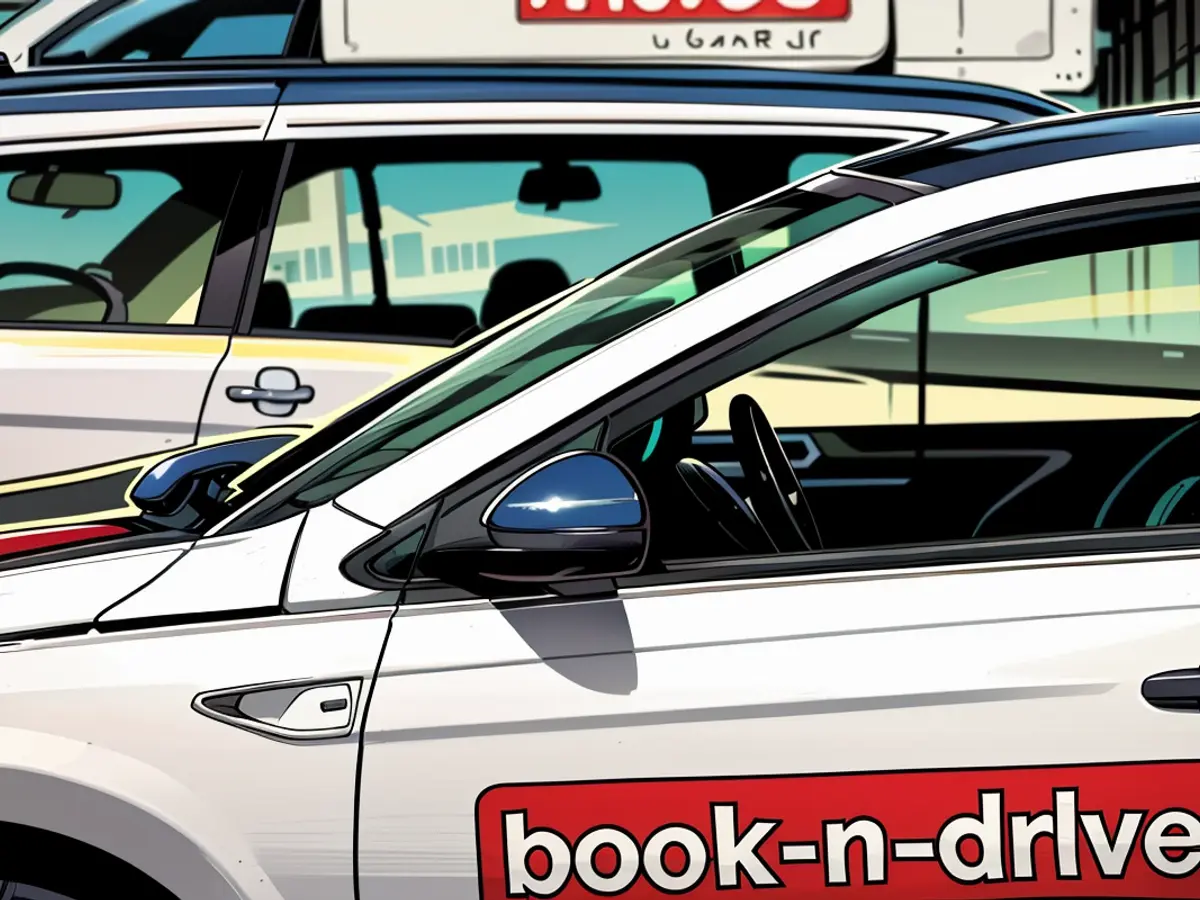- Utilizing Temporary Vehicles - Car-sharing Gains Traction
In urban areas or smaller towns, car-sharing is on the rise in Rhineland-Palatinate, leading to a growing demand for it. Numerous municipalities have delved into this topic, as mentioned by the energy advisory agency in Mainz. Occasionally, a commercial entity is responsible, while other times municipal utilities or cooperative organizations take the lead. For a project to be sustainable, it must suit the specific location, emphasizes Dominik Boeckling, responsible for car-sharing at the energy agency.
The agency maintains a helpdesk for alternative transport methods, offering guidance to municipalities, connecting communities, and establishing relationships with other relevant entities, such as the countrywide car-sharing association. The agency's goal is to have a substantial number of electric vehicles in car-sharing fleets nationwide. At the beginning of this year, electric cars comprised approximately 3% of the overall passenger car fleet, but in car-sharing fleets, they accounted for 17-18%.
Reports suggest that there are currently car-sharing services available in nearly 60 cities or smaller towns in Rhineland-Palatinate, ranging from Alzey in Rheinhessen to Wörth in the state's south. According to Boeckling, well-established car-sharing services are already available in large cities, with providers like "Book'n'Drive" operating in places such as Mainz and Koblenz. The service has seen positive growth in both cities, and further expansion is anticipated.
Koblenz is experiencing continuous expansion, as per the city, with all 42 "Book'n'Drive" parking spaces set to be available at 20 locations by 2025. Janina Steinkrüger, the transport commissioner in Mainz (Greens), regards car-sharing as a crucial component of sustainable mobility development. Expansion is also beneficial for public transport due to substantial overlaps in customer bases, according to Florian Wiesemann, head of mobility in Mainz.
"Book'n'Drive" managed to secure more car-sharing parking spaces in Mainz, with around 200 vehicles slated to be available by spring 2025 - 100 on private parking spaces and 100 on public streets. Furthermore, the provider "UrStromMobil", supported by a citizen energy cooperative, offers five more car-sharing vehicles in Mainz. Future tenders for parking spaces in the city are already being planned, informs city spokesman Ralf Peterhanwahr.
Neuwied: Unprofitable offer
Boeckling explains that municipalities play a substantial role in financing projects, which often cannot be done in a profitable manner; it's a "subsidized business". Another approach is the anchor model, where vehicles are exclusively utilized by administrations or other institutions during working hours and subsequently become accessible to citizens outside these periods.
In Ingelheim, car-sharing was introduced in 2015 with an initial offer from "Rabenkopf BürgerEnergie". Since then, various providers have joined, including twelve vehicles. At present, discussions regarding expansion are underway, with the city's announcement. Similar developments are also taking place in networking with other interested municipalities in the district.
In Neuwied, the city's utilities entered the car-sharing market in 2018, starting with two vehicles and operating eight currently. Spokesperson Gerd Neuwirth reports that demand is steady, with higher usage in the city center than in the suburbs. However, forecasting future expansion is challenging. Neuwirth highlights the importance of marketing and communication to maintain demand but acknowledges that the service is not profitable in Neuwied. As a municipal provider, they view it as a modest contribution to the energy transition.
Trier specifically emphasizes this contribution. There, the "Stadtmobil Trier" provider has been operating for ten years, expanding from five vehicles at five locations to 33 vehicles at 21 locations. Over 700 customers have shared these vehicles, covering approximately 800,000 kilometers and emitting around 24 tons less CO2. The service will continue to grow and expand in the future.
In the Rhein-Hunsrück district, the "Elektro-Dorfauto" project, focusing on electric vehicles, started in 2019 and exceeded expectations. Eight E-Dorfautos were driven for a total of 527,000 kilometers and over 10,300 individual trips. On average, each booking covered 51 kilometers, and vehicles were booked an average of 1.23 times per day. Many users reported planning to purchase their own electric vehicles after using the service.
The district acknowledges long delivery times for electric models as a challenge. Simultaneously, similar projects have been launched in the Mayen-Koblenz district and by individual municipalities. The "E-Dorfauto 2.0" project is currently running in the Rhein-Hunsrück district, with two vehicles in Bickenbach and Büchenbeuren, along with plans for four more in Boppard. However, the number of participating municipalities has decreased due to long delivery times and substantially increased costs.
Boeckling from the energy agency agrees that there are numerous arguments in favor of car-sharing, but each step should be assessed carefully. A failed project might leave "burnt earth", making it challenging to revisit the subject in the near future.
The energy advisory agency in Mainz has encouraged numerous municipalities in Rhineland-Palatinate to explore the potential of car-sharing, recognizing its significance in urban areas and smaller towns. To support these municipalities, the agency offers guidance and establishes relationships with relevant entities, including the countrywide car-sharing association.
Acknowledging the role of municipalities in financing car-sharing projects, Dominik Boeckling from the energy agency emphasizes that these initiatives often cannot be carried out in a profitable manner, highlighting the need for careful assessment before implementation.








